Carlos Norman Hathcock II. The name might not roll off everyone's tongue, but if you're into military history or sniping legends, his story is worth your time. Hathcock, often celebrated for his exceptional prowess with a rifle during the Vietnam War, remains a figure of fascination and respect. With over 90 confirmed kills and many more unconfirmed, his precision behind the scope wasn't just about numbers, but the discipline and focus behind each shot.
Let's rewind to Hathcock's early days. An ordinary kid, like many with big dreams, he enlisted in the Marine Corps. It was here, in the trials of boot camp, that Carlos's talent shone through. His knack for sharpshooting wasn't just something that happened overnight; it was the result of relentless practice and a burning desire to excel.
- Early Life and Military Enlistment
- Sharpshooting Skills and Techniques
- Legendary Missions
- Impact on Military Strategy
- Hathcock's Legacy
- Lessons from Hathcock's Story
Early Life and Military Enlistment
Carlos Norman Hathcock II was born on May 20, 1942, in Little Rock, Arkansas, and grew up in the small town of Wynne. His early years were pretty average, filled with the usual mix of school and outdoor adventures. Yet, there was something that set Carlos apart from other kids—an early intrigue with firearms. By the age of 8, he was already trying his hand at shooting, inspired by stories of his hero, Sergeant Alvin York, a legendary marksman from World War I.
No one could have guessed back then that Carlos would go on to become a legendary sniper himself. As a kid, whenever he could, he spent hours practicing with his .22 rifle, honing the skills that would one day make him a household name in military history. His love for the Marines blossomed early, driven by a desire to be a part of something bigger than himself.
He enlisted in the U.S. Marine Corps in 1959 at the age of 17, with a dream that many young men held: to serve and protect. Carlos's initial days in the Corps were tough, as expected, but they were also crucial in shaping the sniper he would become. Boot camp was more than just physical training; it fostered the discipline and mental toughness that would prove invaluable during his service in Vietnam.
The Marines were where Carlos's natural talent for shooting truly came to light. After basic training, he quickly advanced and was given the chance to attend sniper school at Camp Pendleton. This was a pivotal moment for Carlos, as honing his abilities there set the stage for his later achievements. By the time he deployed to Vietnam in 1966, his skills were finely tuned, ready to make history.
Joining the Marines provided Carlos with opportunities that went beyond just learning how to shoot. It was there that his strategic mind was cultivated and where he truly understood the gravity of precision and patience—key components that defined his legendary status in military history.
Sharpshooting Skills and Techniques
When it comes to sharpshooting, Carlos Hathcock was the real deal. His skills were more than just about aiming and firing; they were the result of a unique blend of instincts, patience, and some pretty meticulous techniques that set him apart from others. So, what made him so effective as a sniper?
Precision and Patience
Hathcock's precision wasn't just about hitting targets but understanding the unique aspects of each shot, like wind direction and distance. One of his well-known techniques was 'one shot, one kill.' This wasn't just a saying but a practice he'd honed with single-minded focus. He believed in taking his time to get it right with that first bullet, minimizing detection risks and maximizing impact.
A fellow Marine once said, "
Watching Carlos work was like seeing an artist paint. Every movement had a purpose."This admiration highlights the meticulousness of his skills—every positioning, calibration, and shot resulted from practice and instinct.
Camo and Concealment
Another skill was his ability to become virtually invisible. Blending into the environment was crucial, and Hathcock mastered this art. Once, he famously crawled over 1,500 yards of enemy territory—the process taking four days—undetected. It's stories like these that show his commitment to precision and the importance of patience in sniping.
Innovative Techniques
Hathcock didn’t rely on conventional methods. He would often use his surroundings to steady his rifle, mastering the art of 'low profile shooting,' which involved hiding his silhouette against the natural backdrop. For Carlos, these methods weren't about style but necessity, often the difference between life and death during the Vietnam War.
Gear and Customization
Finally, the tools of the trade also play a big role. Hathcock preferred the M72, a variant of the Winchester Model 70. But it wasn’t just about the rifle; it was about understanding its limits and maximizing them. Adjusting his scope settings and selecting the right ammunition for different conditions were all part of his skill set.
These sharpshooting techniques helped Carlos Hathcock leave a significant legacy. Modern military snipers still draw from his methods, proving that his pioneering approaches were more than just effective—they were game-changing.
Legendary Missions
When talking about Carlos Hathcock and his legendary missions, it's hard not to start with his most famous feat: the assassination of a North Vietnamese general. This mission was a nerve-wracking ordeal that spanned several days. Hathcock crawled inch by inch over open ground, with little to no cover, minimizing his visibility. Talk about patience and nerves of steel! His successful shot from over 700 yards contributed significantly to the strategic operations of the U.S. military during the Vietnam War.
Another mind-boggling episode involves him taking down an enemy sniper, who happened to be one of the Viet Cong's finest. Known as 'The Cobra,' this adversary was equally skilled at sharpshooting. The two embarked on a deadly cat-and-mouse game, ending when Hathcock spotted the glint of the enemy's scope across the treeline. He fired a shot right through the scope, ensuring the bullet found its mark—a feat practically unheard of at the time. That's right, he literally shot through a rifle scope from over 500 yards. Let that sink in.
The Apache and The Sweepstakes Mission
The infamous 'Apache' was another Viet Cong sniper who instilled fear by torturing captured soldiers. Hathcock and his spotter hunted her down, driven by the monstrous acts she committed. Finding her seemed nearly impossible, but eventually, they did. Hathcock ended her reign of terror with a single devastating shot, halting future cruel tortures.
Then there was the 'Sweepstakes' mission, his selfless adventure through a burning vehicle. While driving a convoy vehicle, the vehicle hit an anti-tank mine. Despite being consumed by flames, Carlos rescued seven Marines from the wreckage, sustaining severe burns himself. His courage was recognized with a Silver Star for this act of bravery.
Carlos Hathcock didn't just shoot well; he meticulously planned every mission, adapted to challenging terrains, and kept a level head under life-and-death situations. His highly strategic moves continue to be studied and revered in military strategy courses. These missions aren't just tales of the past; they are legacies that inspire and teach us about resilience and raw determination.
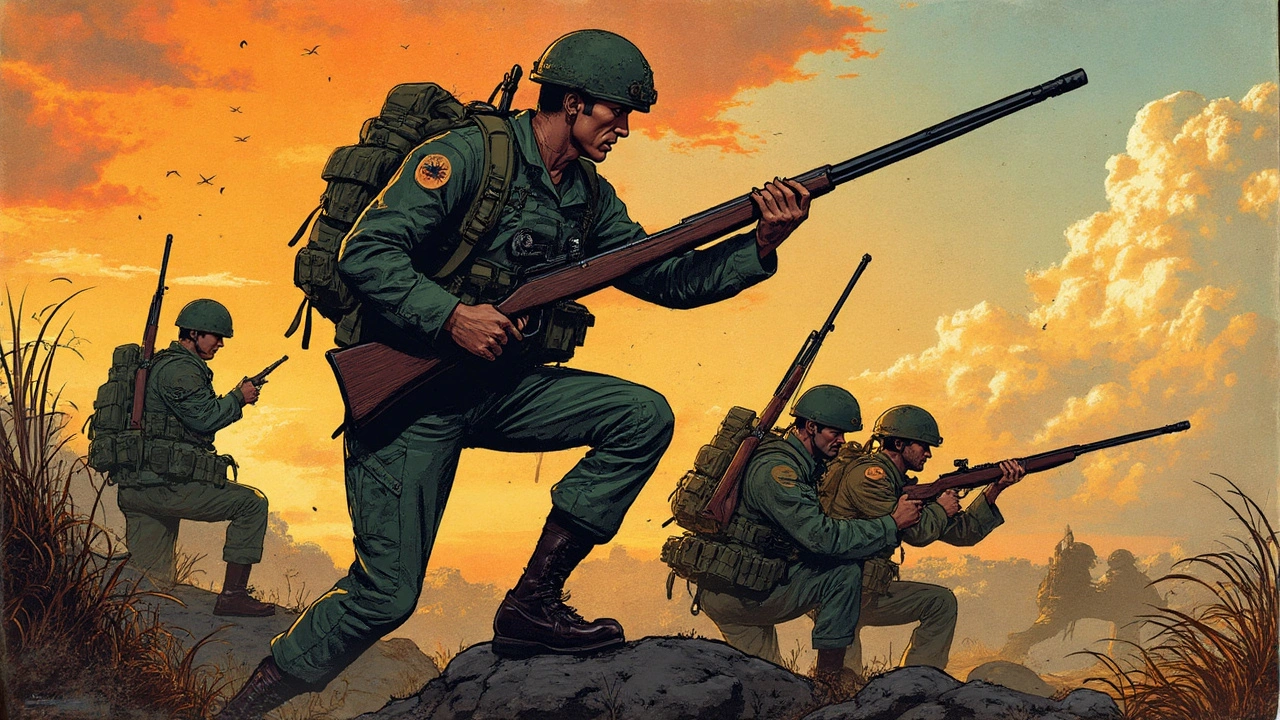
Impact on Military Strategy
Carlos Hathcock's approach to sniping wasn't just about personal skill—it had ripple effects across military strategies both in the US and worldwide. You see, his methods in the field during the Vietnam War brought about a shift in how the role of a sniper was perceived and utilized in combat scenarios.
Before Hathcock, snipers were often deployed as lone wolves, but his success highlighted the need for a more strategic and structured approach. With his demonstrated skills, the US military started seeing snipers as not only executioners of key missions but as integral parts of assault squads.
Technique Innovation
Hathcock's techniques broke new ground. He was all about patience and positioning, making sure each shot was precise. This led to the evolution of 'stalking' techniques, where the sniper would move slowly and deliberately to avoid detection. His innovations in camouflage also played a big part—using natural cover and ingenuity to blend into surroundings.
Training Programs
Thanks to Hathcock's influence, sniper training programs became more intense and focused. The Marine Corps, in particular, revamped their schools to include a wider range of sniper tactics that Carlos employed. It wasn't just about shooting a target but understanding terrain, weather conditions, and enemy psychology.
- Integration of stalking and patience as core components of sniper training.
- Enhanced focus on psychological endurance under high-pressure conditions.
- Improved equipment aligning with the requirements derived from real combat experiences.
His legacy laid the groundwork for modern units using snipers to gather intelligence and execute key missions. As a pivotal figure, Carlos Hathcock not only changed tactics but also brought respect and strategic depth to the sniper's role within military operations.
Hathcock's Legacy
When talking about Carlos Hathcock, it's almost impossible not to bring up the legacy he left behind in the world of modern military tactics. Even after his service, his innovative approaches and sharp instincts kept him an influential figure. His precision and techniques reshaped how snipers operate today, becoming a guidebook for aspiring marksmen.
One of the most pivotal contributions Hathcock made was to the establishment of the Marine Corps Scout Sniper School. His personal experiences became part of the curriculum, teaching trainees not just shooting skills, but the mental toughness needed for the job. He understood that being a sniper was as much about patience and psychology as it was about handling a firearm.
Influence on Equipment
Hathcock's operations highlighted the need for improved sniper equipment. Many of his missions were achieved using a bolt-action rifle, but feedback from the field drew attention to the necessity for customized gear. Today, sniping tools have evolved with better scopes, more reliable firearms, and protective gear influenced by early challenges faced by Hathcock and his peers.
Psychological Insight
One of Hathcock's key teachings centers around the psychology of being a sniper. He conveyed that staying still for hours, adjusting to environmental changes, and making life-and-death decisions under pressure were just part of the job. His success wasn't merely physical prowess but also mental endurance, a lesson that remains integral to sniper training.
Continuing Influence
Beyond training and technical advancements, the stories of Hathcock’s legendary missions—like his one-shot kills or the time he crawled for days in enemy territory—play a role in teaching resilience and strategic thinking. These tales are not just historical records but serve as motivational beacons for those in military services.
Even decades after his time in the Vietnam War, Carlos Hathcock's legacy endures in the military sphere. His life and lessons are more than just stories; they are benchmarks for precision, perseverance, and professional excellence for soldiers worldwide.
Lessons from Hathcock's Story
So, what can we learn from Carlos Norman Hathcock, a man who became a legend in the world of military sniping? His story isn't just about hitting a target—it's about dedication and resilience. Let's break down a few takeaways from his life.
Unwavering Focus and Discipline
Hathcock's acute focus was more than just part of the job—it was a way of life. Whether it was through grueling training exercises or the high-stakes missions in Vietnam, his laser-like attention to detail set him apart. This focus was critical to staying calm and calculating in high-pressure situations. It’s a good reminder for us, whatever our field, to remain focused on our goals, even when they're tough.
Adaptability and Innovation
Carlos was a walking toolkit of adaptability. His creativity in the field, from crafting makeshift ghillie suits to using the environment to his advantage, showed an ability to think on his feet. This kind of innovation isn’t exclusive to battlefields; it's something that can apply to solving daily challenges. His story teaches us to utilize all available resources and never stop adapting.
Endurance and Perseverance
If you think about the physical and mental endurance required to crawl through the jungle for days, it underscores Hathcock’s sheer tenacity. Pushing through adversity, he managed to accomplish his missions against the odds, often under intense scrutiny. This perseverance is a testament to the power of grit and determination—a lesson applicable for tackling long-term projects or personal goals.
Table: Key Stats from Hathcock's Career
| Attribute | Detail |
|---|---|
| Confirmed Kills | 93 |
| Longest Recorded Shot | 2,500 yards |
| Key Missions | Apache and The Cobra |
These lessons from Hathcock’s life don't just stay in the history books. They remind us of the potential within each of us to push boundaries, remain persistent, and think creatively. In our own battles, big or small, there's a little bit of Hathcock's legacy we can carry with us.

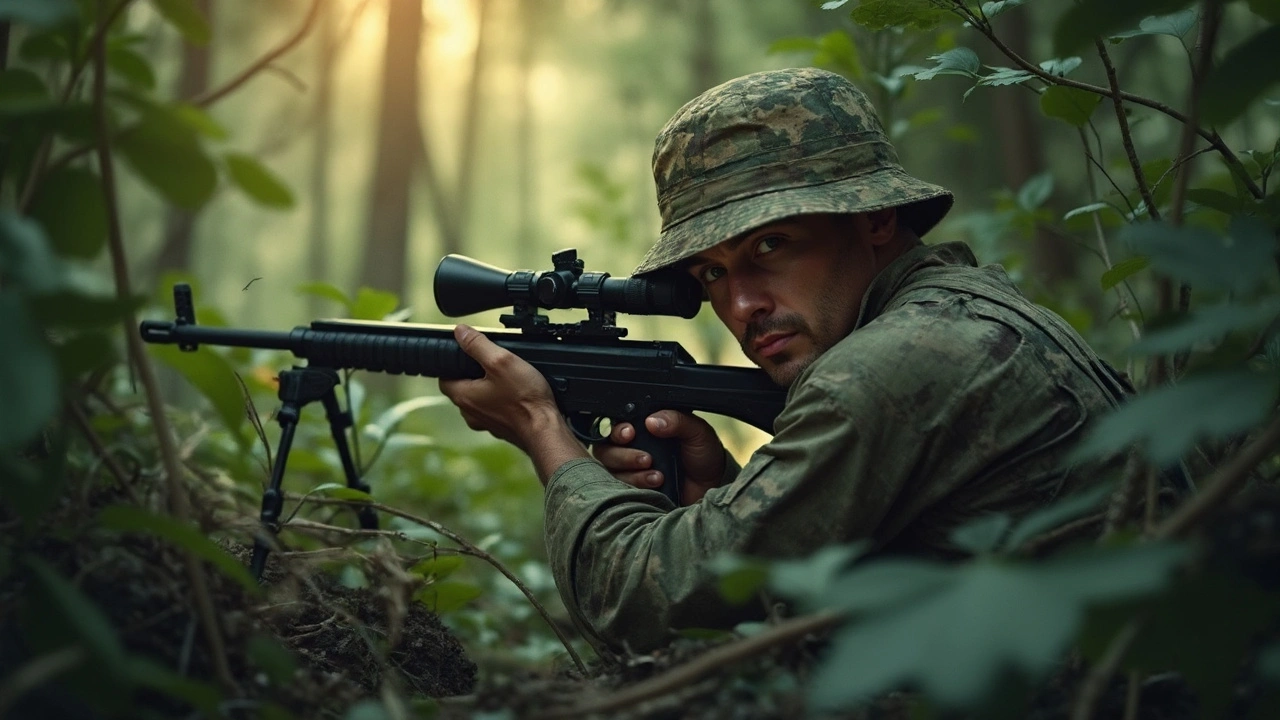
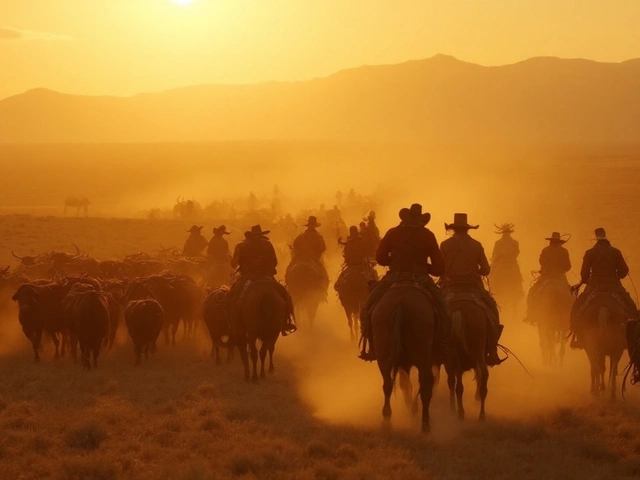
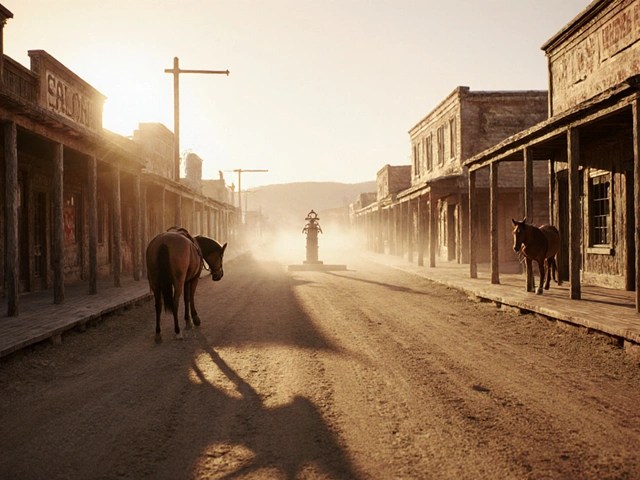
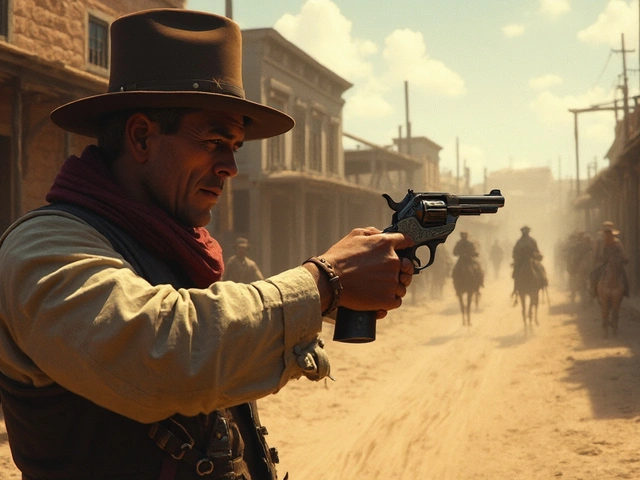

sumraa hussain
July 17, 2025 AT 23:08